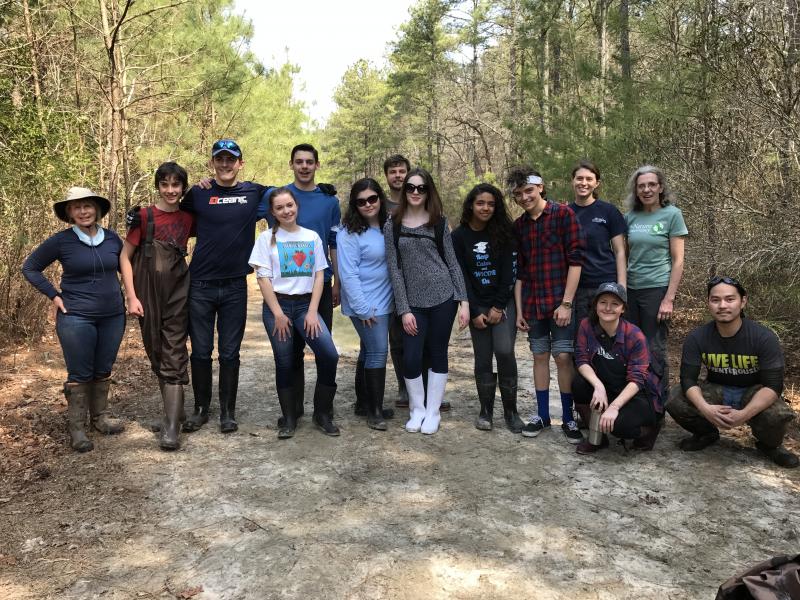CAPE for Tomorrow Club plants trees with Nature Conservancy

Members of the CAPE for Tomorrow club, Compassion for Animals, Protecting the Environment, at Cape Henlopen High School recently helped The Nature Conservancy Delaware with a tree-planting event March 25 at Ponders Tract Forest Preserve outside Milton. The students helped plant 668 Atlantic white cedar saplings, and installed fencing around the planting zones to protect the young saplings from local wildlife.
The tract property was acquired by The Nature Conservancy in 2004, and the organization has been working since then to restore the former loblolly pine plantation to a more diverse forest with an assortment of native tree species. A wide variety of native plants and trees provide the foundation for a healthy ecosystem of native insects, birds, and animals.
The Atlantic white cedar (Chamaecyparis thyoides) is an evergreen species native to the Atlantic seaboard from Florida to Maine. The trees' current habitat range is limited, primarily due to coastal development. These trees tend to form dense stands in low, wet areas including freshwater marshes, swamps and woodlands with damp soils. The Atlantic white cedar provides food and shelter for numerous bird species. The caterpillar of the rare Hessel's hairstreak butterfly feeds exclusively on Atlantic white cedar. The trees also help filter and purify water, stabilize stream banks and store stormwater runoff.
Different types of native trees have been planted throughout the property in the past, but this planting effort focused on the Atlantic white cedar, in part because this beneficial tree hasn't been very successful regenerating on its own. "The Atlantic white cedar has been a prized commercial species since colonial times and has been used for building everything from ships to houses," said Natasha Whetzel, land steward for The Nature Conservancy in Delaware. "Because of its usefulness, the tree has been overharvested throughout the region."
"We are fortunate to house a mature stand on the northern end of the Piney branch within Ponders Tract," Whetzel said. "There's also suitable habitat along the southern end of the Piney branch that will allow us to expand the trees' presence on the property, so that's where our staff and volunteers planted more than 600 seedlings. The support of the volunteers who helped in this initiative is greatly appreciated."
Volunteers also installed deer fencing around the planting area to prevent overbrowsing by the white-tailed deer that quickly devour new seedlings. Ponders Tract is a 908-acre parcel with over nine miles of hiking trails. For more information, go to www.nature.org/ponders.






















































